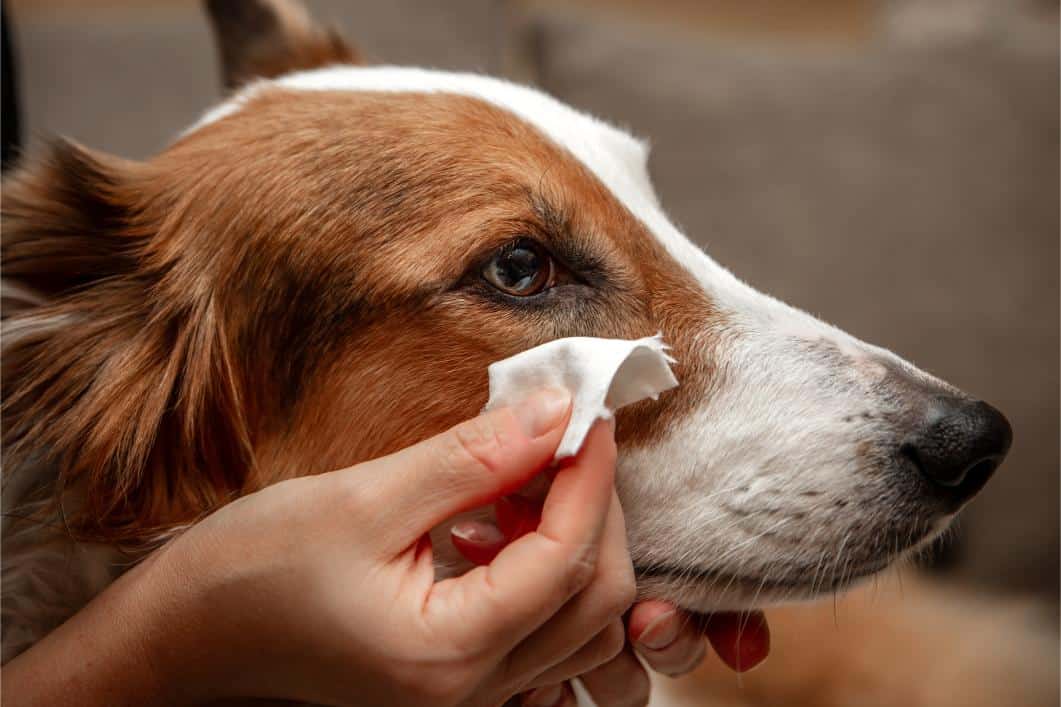Allergies in Pets

Allergies in pets usually cause itching (and lots of it). It’s not easy to just stand by and watch your best friend constantly scratch an itch that won’t go away. The first step toward any kind of relief is consulting your veterinarian. In addition to relieving the symptoms, we can work toward identifying possible reasons for the allergic reaction.
Oh, So Itchy!
There are three common categories of allergies in pets: environmental, food, and flea.
- Airborne allergens, whether inhaled or absorbed by the skin, can lead to atopy, or allergic dermatitis in pets. Pollen, grass, mold, dust, dander and other environmental contaminants can cause itchy skin in a range of severity.
- Food allergies result from a sensitivity to a certain ingredient in a pet’s food, and flea allergy dermatitis is caused by a reaction to flea saliva left behind on the skin after feeding.
- You may notice redness around the ears and face, paws, groin, armpits, and rear end, accompanied with ceaseless scratching, biting, chewing, and vocalization. Flea allergy dermatitis may result in redness and itching of the entire trunk or back half of the body.
Ruling Things Out
Other external parasites or bacterial, fungal, or yeast infections can cause itchy skin in pets as well, so it’s necessary to schedule an exam to rule these out.
Atopy can start out as seasonal itchiness, and is typically seen in affected pets by the age of three. It can develop into a year-round condition. Food allergies, on the other hand, are seen much later in affected pets (usually between 5-6 years of age) and occur regardless of season.
Diagnosing Allergies in Pets
Diagnostics, including skin cytology to identify bacteria or yeast, skin scraping, and/or cultures may be relied on to accurately diagnose atopy. Once infections or other parasites are ruled out, we may proceed with intradermal skin or blood testing to determine specific allergens.
Pursuing Treatment
The good news is that general symptoms of atopy respond well to antihistamines and corticosteroids.
- Reducing inflammation is key to decreasing the chance of secondary skin infections.
- Food allergy symptoms can be successfully minimized with steroid prescriptions, but long-term use may not be recommended.
- Pet owners can lean on topical treatments like hypoallergenic or medicated washes and rinses to soothe the skin.
- Fatty acid supplementation can help with anti-inflammatory response and work well with antihistamines.
- Avoiding the known trigger, like mold or dust mites, can help pet owners control their pet’s environment and avoid exposure.
Immunotherapy may be warranted if specific allergens were identified via intradermal or blood tests. Immunotherapy can be taken orally or by injection and help desensitize a pet to the known allergen. About 60-80% of pets treated with immunotherapy improve within 6 months. This treatment is necessary throughout a pet’s life.
We Can Help
Because every pet is unique, it can take a significant period of time to relieve symptoms, identify allergens, and treat the source of allergies in pets. A multi-pronged defense of oral and topical medications, and other therapy, can help control allergies.
If you have further questions about allergies in pets, or need to schedule a wellness examination, please call Dupont Veterinary Clinic at (260) 637-7676.
